#beginner korean grammar
Text

Easiest Korean Particles
N처럼, N같이
N마다
N쯤
N이나
N처럼, N같이 = Like [Noun]
Usage: Kind of like a “simile” in English and it corresponds to “like” or “as”. When you want to express that an action appears the same or similar to the noun you attach 처럼 or 같이 to.
Note: 처럼/같이 are often used metaphorically to compare characteristics by comparing them to other things.
Examples:
그 남자는 말처럼 빨리 달려요. He runs as fast as a horse.
지민 씨는 천사같이 노래해요. Jimin sings like an angel
그녀의 머리는 아이돌처럼 예뻐 보여요.
Her hair looks as pretty as an idol.
N마다 = Every [Noun]
Usage: This is attached to nouns that express a time - time nouns. To indicate the repetition of the same/similar situation or behavior over a set period of time. It can be translated as “every”, “each”, “once every“. It’s added directly next to the time noun being described.
Examples:
주말마다 여행을 가요. I go on a trip every weekend.
금요일마다 친구를 만나고 외식을 해요. Every Friday I meet my friends and (we) go out to eat.
우리 집에는 방마다 티비가 있어요. There’s a tv in every room in (our)my house.
Note: It can also be added to non time nouns - regular nouns.
Ex: 학생마다 달라요. Each student is different.
No need to add it to words that have 매 in them as it indicates “every ___”
매일 (everyday) → 매일마다 (X)
날 (day) → 날마다 (everyday)
N쯤 = About [Noun]
Usage: It’s added to nouns that represent numbers, times, and quantities. It indicates an approximation - “about” or “around”.
Examples:
넌 열다섯 살 쯤 되어 보여요. You look about 15 years old.
한시쯤 어때요? 수업이 열두시 오십분에 끝나요.
How’s around 1 o’clock? My class ends at 12:50.
우리는 일년쯤에 중국에서 중국어를 공부할 거예요. We will study Chinese In China for around a year.
Extra Notes:
When referring to approximate prices, ‘Noun쯤 하다’ is used more often than just ‘Noun쯤이다’.
Example:
사과는 세개에 이천원쯤 해요.
Apples cost about 2000 won for 3.
N이나 = Noun Or Noun
Usage: This actually has 3 usages, but we will focus on the main one which means “or”. It can only be attached to nouns. One of the two or more listed nouns will be chosen. (거나 means the exact same, but is attached to verbs instead)
Form:
Consonant - 이나
Vowel - 나
Examples:
목이 말라요. 물이나 차를 마시고 싶어요. I’m thirsty. I want to drink water or tea.
구두나 가방을 살 거예요. I’ll buy some shoes or a bag.
토요일에나 일요일에 운동해요. I exercise on Saturday or Sunday. (You can attach 나 to 에 or leave 에 out and just use 이나)
PRACTICE SECTION:
Something to keep in mind is that when you are using these particles you do not need to also attach the subject or object particles to them!
TRANSLATE EACH
1.) We go to Itaewon every Saturday night.
2.) I went to the hospital around 10:30 am.
3.) We talked for about 4 hours.
4.) My sister can dance like Jhope.
5.) Every 2 hours I drink water or tea.
#korean particles#practice korean particles#beginner korean grammar#korean grammar#이나#나#쯤#쯤하다#마다#처럼#처럼 lesson
101 notes
·
View notes
Text
One-Page Masterlist
안녕하세요! Hey everyone! I recently got an ask about my old masterlist, which is the same as my broken-down masterlist except it has all of my lessons on one page, rather than on multiple separate posts. Some may find this expanded version easier to navigate, so I’ll keep this up for y’all! My broken-up masterlist, of course, will still be available for those who find that more helpful :)
Hangul Lessons
Consonants
Vowels
Writing/Reading Korean Syllables
Some 받침 Rules
Diphthongs
Stroke Order
Some More 받침 Rules
Irregular Verbs
The Basics
Common Phrases
Numbers
Sino-Korean vs. Native Korean Numbers (Instagram Post)
Sentence Structure and Particles
Present-Tense Conjugations and Formal Language
Adjectives
Questions
Honorifics and Casual Language
Beginner
Negative Sentences
잘 and 못
Past Tense
Future Tense (-ㄹ / 을 것이다)
-ㄹ / 을 까요? (Shall we…? / I wonder…?)
-(으)세요 (Giving Commands / Asking Questions)
Telling Time
-고 싶다 (I want to…)
How to Say “And”
-지만 (However)
아/어/여서 (So…)
Negative Commands
Spacing (띄어쓰기)
Adverbs
ㅂ Irregular
Comparatives and Superlatives
난, 날, & 내가
Upper-Beginner
-(으)면 (If…)
아/어/여도 (Even though…/Even if…)
(으)면 되다 / 아/어/여도 되다 (I can…/You may…)
-아/어도 되다: Asking for and Giving Permission (Instagram post)
-(으)면 되다 & -(으)면 안 되다 (Instagram post)
아/어/여야 되다 and 아/어/여야 하다(Have to / Should)
Present Progressive (-고 있다)
How to Say “Or”
-아/어/여하다
All About 중
How to Use -(으)로
Before & After
-ㄴ/은 채로
Intermediate
Describing Nouns with Verbs (-는 것)
Describing Nouns with Verbs - Past & Future Tense (-ㄴ/은 / -ㄹ/을 것)
Nominalization
것 같다 (I think… / It seems…)
-러 가다 / -러 오다
-(으)려고 (In order to…)
-기로 하다 (to Decide to do Smth)
척하다 (To Pretend)
-게 되다
-군요 / -구나
아/어/여 보다 (to try…)
-은/ㄴ 적 있다 / 없다 (I have / have not)
-ㄹ/을 게요 (Future Tense)
겠다
-ㄹ/을 수 있다/없다 (I can / cannot)
-ㄹ/을 때 (When…)
-ㄴ/는다면 (If)
-(으)면서 and -(으)며
-(으)니까 (Because / So)
-아/어/여주다
-(ㄴ/는)다 (Narrative Form)
Quoting
Let’s…
Quoting continued
(으)ㄹ래요? (Wanna…?)
-죠
-대로
More Quoting - 대 & 래
잘하다 & 못하다 vs. 잘 하다 & 못 하다
-아/어 가지고
-(으)려면
-는 길에 & -는 길이다
-(으)면 vs. -ㄴ/는다면 (Instagram Post)
-았/었을 것이다
-느라고
-는 데(에)
-ㄹ/을 뻔하다
Upper-Intermediate
-ㄴ/는데
-(으)ㄴ/는지 (Whether or not)
-(이)라는…
All About 아무리
-잖아요
Expressing Surprise
-시 (Honorific)
Making Comparisons
-아/어/여지다
I might…
So that…/To the point where…
Causative Verbs
시키다
Passive Verbs (part 1)
Passive Verbs (part 2)
-ㄴ/은가 보다 & -나 보다 (I guess…)
-ㄹ/을수록
Other Meanings of 싶다
-자마자 & -는 대로(As soon as…)
-긴 하다
-치고
-김에
차라리 (Rather)
-(으)ㅁ Nominalization
-기는 무슨 & -기는 개뿔
-고 보니까
-듯(이)
버리다
-(으)면 좋겠다 & -(으)면 하다
-길 바라다
Advanced
-거든(요)
-줄 알다/모르다
-ㄹ/을 테니까 and -ㄹ/을 텐데
-았/었던
아니라 and 대신에
-ㄹ/을 리가 없다
편이다, 별로, and More
-지 그렇다 (Why don’t you…?)
-ㄹ/을 걸
-ㄹ/을 까 보다
-다면서요
-다니 part 1
-다니 part 2
뜻이다 & 말이다
-다가
-더라고(요)
-더니
Some colloquialisms: 아니시에이팅 and 뭐 이렇게
-(으)ㅁ Sentence Ending
-다 보니까
What does 따위 mean?
-ㄴ/는데도
Korean Idioms
Vocabulary
Must-Know People
Must-Know Places
Must-Know Things
Must-Know Verbs
Must-Know Adjectives
Countries
Months, Days of the Week, and More
Clothing (옷)
School (학교)
Autumn (가을)
Autumn (w/Pictures!)
More Questions
House / Apartment (집 / 아파트)
Emotions / Feelings ( 감정)
Animals (동물)
Loan / Konglish Words
Food and Drink (먹을 것과 마실 것)
Parts of the Body (몸)
Counters
Modes of Transportation (교통 수단)
Colors (색깔)
Colors (with Pictures!)
Weather (날씨)
Winter (겨울)
Music & Instruments (음악과 악기)
Baking Gingerbread Cookies
Emergency (비상)
Hygiene & Bathroom (위생 & 화장실)
Indefinite Pronouns
Work / Office (일 / 사무실)
Spring (봄)
Coronavirus Prevention (코로나바이러스 방역)
How to Wash Your Hands (손을 씻기)
Time (시간)
Korean Cuisine (한식)
Summer (여름)
Summer (여름) w/Pictures!
Graduation (졸업)
Identity (독자성)
Korean Text Slang
Similar Words
Makeup w/Pictures! (화장품)
Family (with Pictures!)
Pronouns
How to Say “Still” and “Already” in Korean
Tastes & Textures (맛과 질감)
K-Pop Audition
K-Pop Fandom Terminology
Different Ways to Say “Change”
Flower Names
What Does 원래 Mean?
What does 오히려 Mean?
College
Hanja Lessons
최
수
악
식
급
동
부 & 불
애
출
퇴
예
음
중
학
습
연
생
대
입
인
문
감
과
원
특
만
후
무
Charts
Present, Past, and Future Tense
Question Words
잘 vs. 못 and Negative Conjugations
Future Tenses
-았/었던 vs. -던 (at end of lesson)
Particles
Some 받침 Rules
Gifving Commands
Conjunctions and -아/어/여서 vs. -(으)니까
-(으)면 vs. -다/라면 and Different Ways to Say “And”
How to Say “Or” (at end of lesson)
Telling Time (at end of lesson)
Comparatives and Superlatives
잘하다 & 못하다 vs. 잘 하다 & 못 하다 (at end of lesson)
Comparing 잘하다/못하다, 잘 하다/못 하다, & 수 있다/수 없다
Irregular Verbs
Pop Quizzes
Level 1
K-Pop Breakdowns
TXT - “Cat & Dog”
Twice - “Feel Special”
Enhypen - “Fever”
2NE1 - “Go Away”
Lee Hi - “Only”
“기억을 걷는 시간 (Time Spent Walking Through Memories)”
KCM - “An Old Love Story (흑백사진)”
Taeyeon - “Can’t Control Myself”
Epik High - “Lost One”
Colde - “A Song Nobody Knows”
IU - “My Sea”
Enhypen - “Polaroid Love”
유라 (youra) - “하양 (RAL 9002)″
BTS - “Ddaeng”
Stray Kids - “For You”
Woozie - “어떤 미래 (What Kind of Future)
TXT - “Eternally”
LOONA - “Heart Attack”
Stray Kids - “Muddy Water”
LOONA - “Girl Front”
Pentagon - “Daisy”
BTS - “Sea”
Semester in SK
Nami Island (남이섬)
Things to Buy at Daiso
Shopping Phrases
Ordering Coffee
Signs in Korea
Ordering at a Restaurant
Riding the Seoul Subway
Things at the 편의점
Korean Curse Words
Etiquette in South Korea
Drinking Culture
Hanja in Real Life
Holidays in South Korea
Korean Cuisine
Concert Ticketing in South Korea
K-pop Comebacks in Korea
Summer in South Korea
What I Learned
#korean#korean language#hangul#korean grammar#korean vocab#korean vocabulary#learn korean#learning korean#langblr#Korean langblr#masterlist#apok#apopofkorean#study korean#studying korean#kpop#kpop lyrics#basic korean#beginner korean#intermediate korean#advanced korean#hanja#한국어#한글#한자#한국어 공부하기#한국어 배우기#한국어 문법#한국어 어휘#초급 한국어
2K notes
·
View notes
Text
Note to self: it is useless to be able to ask questions about more complex topics if you’re unable to understand the answer.
#striking up convos with people on the street#my vocabulary and grammar are pretty advanced beginner so it creates the impression I can speak fairly fluently#except my listening comprehension is not great#so the result is I can ask about almost anything#but unless it’s basic stuff like small talk or directions I don’t understand the answer#case in point tonight: I asked the guy at the mini store why the heck he’s selling Korean newspapers#the only thing I understood of his response was that he thought the paper was Chinese#and was surprised to learn it was actually Korean#but I still don’t know why he’s selling those papers#Swahili#language learning#life posting#come to think of it it’s the opposite of my French#where I understand everything but cannot speak beyond a fourth grade level
5 notes
·
View notes
Text
.
#one of my goals for the next few years is to improve my foreign language skills#ive always loved languages and i want to COMMIT#like my french is honestly pretty good but id like to become more fluent and brush up on my grammar knowledge#my asl is pretty beginner but as long as i can memorize the vocab i honestly think i can get by i just need to practice comprehension#i have very baby knowledge of spanish but i want to try to fit some spanish 1 and 2 into my the rest of my undergrad if i can#and honestly i watch so many kdramas that even if i dont understand it im familiar enough with korean that i think it would be pretty#comfortable to start learning it#that would be a nice collection of languages i thinj
0 notes
Text

#If you're looking to learn Korean grammar#there's no better resource than Talk To Me in Korean Level 2 (Grammar Textbook + Workbook). This comprehensive guide covers all the basics#from simple phrases to more complex concepts. And with both a textbook and workbook included#you'll have everything you need to master the material.#The Talk To Me in Korean Level 2 (Grammar Textbook + Workbook) is perfect for anyone who wants to learn Korean grammar#whether you're a beginner or a more advanced student. This book will help you develop a strong foundation in Korean grammar with clear expl#grab a copy of the Talk To Me in Korean Level 2 (Grammar Textbook + Workbook) today!#.#Lazada#LazadaPH#LazadaFinds#LazadaPhilippines#LazadaPayDay#lazadabudol#koreanbook#koreanlanguage#hangeul#learningkorean#talktomeinkorean#ACTIVEKOREAN#learninghangeul#bookstagram#bookish#booksphilippines#learnanewlanguage#learnkorean#tinytrends#TinyTrendsPH#koreanbooksph#koreanbooks
0 notes
Text
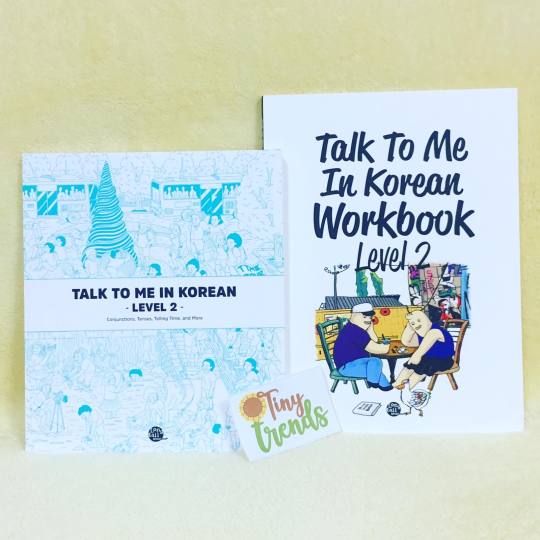
#If you're looking to learn Korean grammar#there's no better resource than Talk To Me in Korean Level 2 (Grammar Textbook + Workbook). This comprehensive guide covers all the basics#from simple phrases to more complex concepts. And with both a textbook and workbook included#you'll have everything you need to master the material.#The Talk To Me in Korean Level 2 (Grammar Textbook + Workbook) is perfect for anyone who wants to learn Korean grammar#whether you're a beginner or a more advanced student. This book will help you develop a strong foundation in Korean grammar with clear expl#grab a copy of the Talk To Me in Korean Level 2 (Grammar Textbook + Workbook) today!#.#Lazada#LazadaPH#LazadaFinds#LazadaPhilippines#LazadaPayDay#lazadabudol#koreanbook#koreanlanguage#hangeul#learningkorean#talktomeinkorean#ACTIVEKOREAN#learninghangeul#bookstagram#bookish#booksphilippines#learnanewlanguage#learnkorean#tinytrends#TinyTrendsPH#koreanbooksph#koreanbooks
0 notes
Text
Masterposts:
Masterpost #1
Masterpost #2
0 notes
Text
google drive of free korean language learning resources
hi everyone! because i put tutoring on hold while i am working full time but still want to provide help to those who want to start learning/want to practice their korean, i am continuously compiling material for free learning :)
resources are totally free!
most are typically aimed at children (which is great for beginners!!)
hangul practice
vocabulary building
printable/downloadable
example of scans:
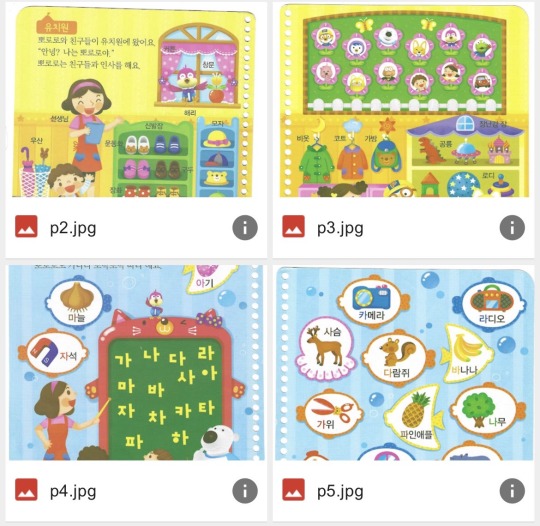
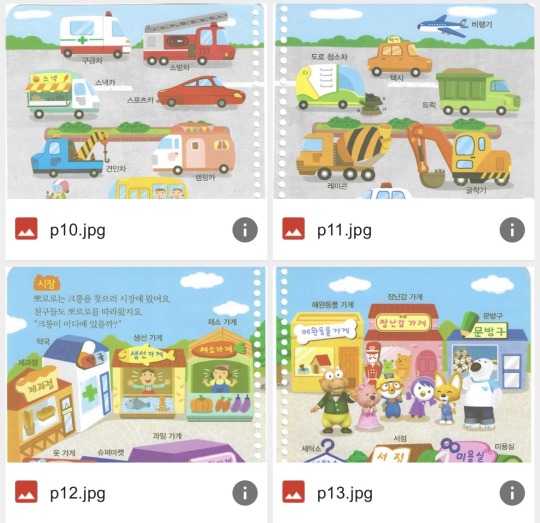
example of grammar breakdowns:
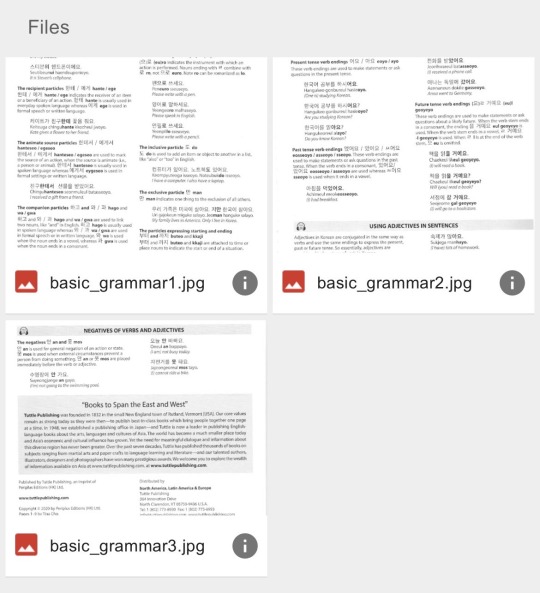
i will be adding material over the coming weeks and continuously as i come across material! updates may be frequent or slow down at times.
note: resources are free, and they’re totally free to share and use! but please do not repost without credit, and because i buy these from my workplace with my own money and spend time scanning them and cleaning them up and organizing them, please consider tipping me as much as you’d like ♥️
here is the link to the drive! (sorry, can’t hyperlink on mobile currently)
enjoy, and thank you in advance! have fun and feel free to ask me any questions—i am a korean studies grad and was a tutor for the beginning korean classes at my university. i am happy to help however i can!
♥️ joey
#ok about to tag the hell out of this sorry in advance#studyblr#study korean#korean#learning korean#hangul#learning hangul#beginner korean#korean study#korean studyblr#korean study notes#한글#한국어 공부하기#한국어공부중#한국어 배우기#korea#korean langblr#korean language#resource#language resources#korean learning#korean learning resource#OK ANYWAYS feel free to reblog like etc#just want to provide some help :)))
2K notes
·
View notes
Text

4 Easy Korean Grammar
자마자, 아/어야 되다, 네요, 뿐만 아니라
There are 2 intermediate and 2 beginner grammar, although I think they are almost all around the upper beginner/low Intermediate range. Depending on your level, these will be very easy to learn compared to some other (more complicated) Korean grammar.
~ 자마자 (beginner)
~ 아/어야 되다 (intermediate)
~ 네요 (beginner)
~ (으)ㄹ뿐만 아니라 (intermediate)
V-자마자 = as soon as, right away
Usage: to Indicate that something occurs immediately after the end of some other event or action. It’s added to verbs and translated as “right after” or “as soon as” in English. -자마자 can also be shortened to just -자.
Base form → -자마자 = Ex: 보다 → 보자마자 - as soon as I see, as soon as I look, as soon as I watch
Examples:
수업이 끝나자마자 학생들은 교실을 나갔어요.
The students left the classroom right after class ended.
상자를 열자 오래된 책들과 문서가 보였습니다.
When I opened the box, I saw old books and documents.
가게에서 보자마자 마음에 들어서 바로 산 거야.
I bought it right away because I liked it as soon as I saw it at the store.
Rules To Know:
The tense in not expressed with the first verb before 자마자, but is added in the second verb.
Example:
집에 갔자마자 쉬었어요 (X) → 집에 가자마자 쉬었어요 (O)
The subjects in the first and/or second clause can either be the same or different and it’s still fine
A/V -아/어야 되다 = have to, should
Usage: To express an obligation or necessity to do something. The form can end with 아/어야 하다 or 아/어야 되다 with no change in meaning, although of -아/어야 되다 is more commonly used than -아/어야 하다.
Forms:
Verbs ending in vowel ㅏ or ㅗ + 아야 되다/하다:
가다 → 가야 되다/하다 = have to go
Verbs ending in vowel other thanㅏ or ㅗ + 어야 되다/하다:
읽다 → 읽어야 되다/하다 = have to read
하다 verbs → 해야 되다/하다:
공부하다 → 공부해야 되다/하다 = have to study
Examples:
시간이 늦어서 이만 집에 가야 해.
It's late, so I have to go home now.
그는 여자 친구에게 줄 꽃은 꼭 빨간 장미이어야 된다고 했어.
He said the flowers for his girlfriend must be red roses.
비 오는 날 운전할 때는 평소보다 더 조심하여야 돼요.
You should be more careful than usual when driving on a rainy day.
A/V/N - (이)네요 = really, certainly, wow
Usage: to express surprise when you learn something from an experience (not from another source) or agree with someone (experiencing the same thing)
Tense:
A/V -네요
N -(이)네요
학생 -> 학생이네요
의사 -> 의사(이)네요
Examples:
오늘은 날씨가 정말 좋네요.
Wow, the weather is really nice today.
백화점에 사람이 정말 많네요.
There are so many people at the store today.
가: 한국 음식을 잘 드시네요. = You eat Korean foods really well.
나: 네, 한국 음식이 아주 맛있어요. = Yes, Korea food is so delicious.
(으)ㄹ 뿐만 아니라 = not only A but also B
Usage: to express that “not only what you said in the first sentence, but also what you said in the first sentence”. This can be without the -만 part added in too.
Tenses:
A/V (past) - 았/었을 뿐만 아니라
A/V (present) - 을/ㄹ 뿐만 아니라
N이다 - w/ consonants - 일 뿐만 아니라
N - w/ vowels - 뿐만 아니라
Examples:
지수는 예쁠 뿐만 아니라 성격도 좋아서 인기가 많네.
Not only is Jisoo pretty, but her personality is also really good, so she’s very popular.
승규는 약속 시간에 나타나지 않았을 뿐만 아니라 이후에도 연락이 없었어요.
Seungyu not only didn’t show up to our date on time, but also didn’t even contact me after.
#korean grammar lesson#korean grammar#intermediate korean grammar#beginner korean grammar#아야 되다#어야 되다#아/어야 되다#뿐만 아니라#을 뿐만 아니라#자마자#네#네요 grammar
29 notes
·
View notes
Text
Beginner & Upper-Beginner Lessons
Click here for the masterlist of all my lessons!
Beginner
Negative Sentences
잘 and 못
Past Tense
Future Tense (-ㄹ / 을 것이다)
-ㄹ / 을 까요? (Shall we…? / I wonder…?)
-(으)세요 (Giving Commands / Asking Questions)
Telling Time
-고 싶다 (I want to…)
How to Say “And”
-지만 (However)
아/어/여서 (So…)
Negative Commands
Spacing (띄어쓰기)
Adverbs
ㅂ Irregular
Comparatives and Superlatives
난, 날, & 내가
Upper-Beginner
-(으)면 (If…)
아/어/여도 (Even though…/Even if…)
(으)면 되다 / 아/어/여도 되다 (I can…/You may…)
-아/어도 되다: Asking for and Giving Permission (Instagram post)
-(으)면 되다 & -(으)면 안 되다 (Instagram post)
아/어/여야 되다 and 아/어/여야 하다(Have to / Should)
Present Progressive (-고 있다)
How to Say “Or”
-아/어/여하다
All About 중
How to Use -(으)로
Before & After
-ㄴ/은 채로
#korean#korean language#beginner korean#korean lesson#korean lessons#korean resource#learn korean#learning korean#study korean#studying korean#langblr#korean langblr#korean grammar#한국어#문법#한국어 레슨#한국어 공부하기#한국어 배우기#한국말
383 notes
·
View notes
Text
day 19 of 30 // it's springtime in my mind 🍋🌼
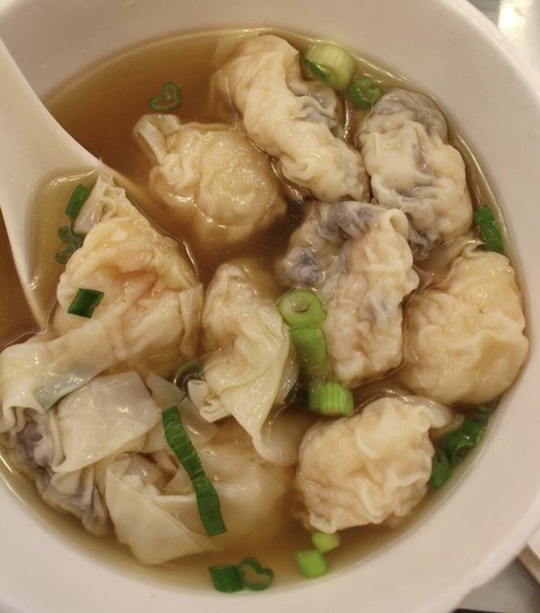


今天早上十点我起床了。最近我的睡觉不好了。但是,这是周末,所以我会尝试觉得高兴。我的早饭是芒果和奶酪挞。我的午饭是排骨。昨天我吃饺子。(this morning i woke up at 10. lately my sleep is not good. but it's the weekend, so i will try to feel happy. my breakfast is mango and cheese tart. my lunch is ribs. yesterday i ate dumplings.)
❤️ 冥想 (meditate)
📝📝📝 三节日本语课 (three Japanese language lessons)
📚 读完书 (finished reading All Creatures Great and Small)
🥰🥰 手臂的锻炼和跑步 (arm workout and running)
❤️ 写我的日记 (write my diary)
language learning recommendations 🙊
🎧 Japanese Q&A (come for the language exposure, stay for the life advice 👌)
🎧 Chinese vlog (accessible for beginners)
🎧 Korean short story (still losing my sanity over the grammar 😭)
🎧 Korean podcast (losing brain cells pt. 2 but still better than the short story because at least now i know all the words 🥲)
🎧 re-watching more Exclusive Fairytale episodes (C-drama)
한국어: 오늘 아침에 열시 일어나요. 요즘 내 잠은 안좋아요. 하지만 주말서, 일해 없어, 그래서 좋은 기분해볼게요. 내 아침은 망고와 치즈 타트 먹어요. 하고 내 점심은 갈비 먹어요. 어제 난 만두 먹어요.
🇯🇵日本語: ときどき家族とドラマを見ます。每日一人で本を読みます。(sometimes i watch dramas with my family. everyday i read books by myself.)
#studyblr#langblr#30doi#study motivation#study inspiration#100 days of productivity#100 days of studying#100 days of self discipline#self improvement#self development#self empowerment#zesty's life#study aesthetic#heydilli#astudentslifebuoy#bookblr#currently reading#korean langblr#chinese langblr#japanese langblr#self care#self love#daily routine#daily habits#day in the life#studyspo#study blog#that girl#it girl#pinterest girl
82 notes
·
View notes
Text
Recommendation: Apps for Japanese Learning

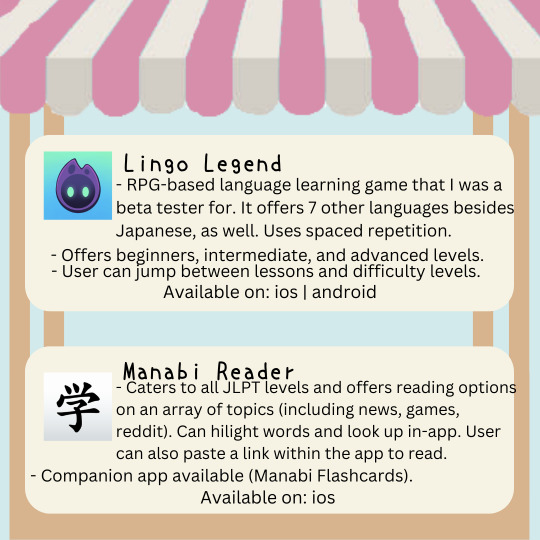
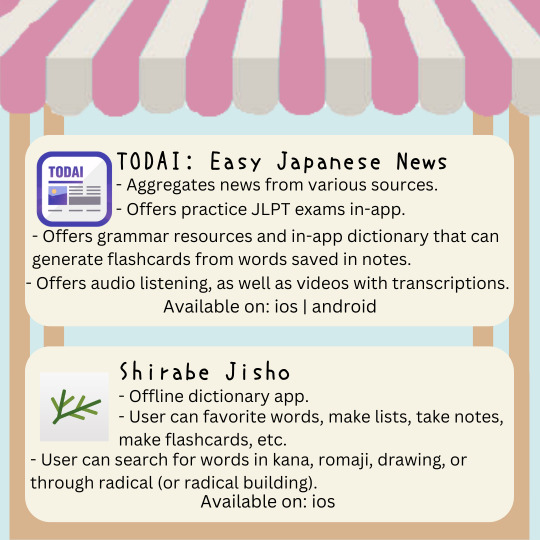

Over the years, I've downloaded and tested many apps. Though my favorite app was discontinued (I miss you, mindsnacks Japanese), there are still others that I don't think I'll be removing from my phone any time soon. In light of duolingo's horrible update causing a large migration and search for other apps, I thought I'd share some of my favorites. Also, some of these apps have websites or discords for you to interact with other users or to ask support questions.
For those who cannot use/don't like the graphics, the written out version is below the break.
Lingo Legend
RPG-based language learning game that I was a beta tester for. It also offers Spanish, French, Japanese, Korean, Mandarin Chinese, German, Italian, and Portuguese. Uses spaced repetition.
Offers beginners, intermediate, and advanced levels.
User can jump between lessons and difficulty levels.
Available on ios and android
Manabi Reader
Caters to all JLPT levels and offers reading options on an array of topics (including news, games, reddit). Can hilight words and look up in-app. User can also paste a link within the app to read.
Companion app available (Manabi Flashcards).
Available on ios
TODAI: EASY Japanese News
Aggregates news from various sources.
Offers practice JLPT exams in-app.
Offers grammar resources and in-app dictionary that can generate flashcards from words saved in notes.
Offers audio listening, as well as videos with transcriptions.
Available on ios and android. Also has a website.
Shirabe Jisho
Offline dictionary app.
User can favorite words, make lists, take notes, make flashcards, etc.
User can search for words in kana, romaji, drawing, or through radical (or radical building).
Available on ios
Renshuu
Think quizlet, but solely for Japanese. You can create your own lists, use others, play shiritori, earn prizes and interact on forums.
You can study grammar, kanji, vocab, flashcards, learn and submit mnemonics. You can also friend people.
Available on ios and android. Also has a website (of which I am an avid user).
Connect with me: Ko-fi Shop & Tips | Discord | Studygram | Ask Box
↳ psst! my ko-fi shop has learning resources on it. try to check back for new things bc im always working on something to add in there
#onigiristudies#heydilli#jpnstudynet#look toki#looktoki#look asta#japanese#langblr#study japanese#learn japanese#language apps#jlpt#jlpt kanji#jlpt studies#kanji#japanese grammar#日本語#勉強#learning through immersion#bookblr#studyblr#hey guys#kingyo hut#my shop#thanks for reading my research posts and my suggestion posts
1K notes
·
View notes
Text
.
#one of my goals for the next few years is to improve my foreign language skills#ive always loved languages and i want to COMMIT#like my french is honestly pretty good but id like to become more fluent and brush up on my grammar knowledge#my asl is pretty beginner but as long as i can memorize the vocab i honestly think i can get by i just need to practice comprehension#i have very baby knowledge of spanish but i want to try to fit some spanish 1 and 2 into my the rest of my undergrad if i can#and honestly i watch so many kdramas that even if i dont understand it im familiar enough with korean that i think it would be pretty#comfortable to start learning it#that would be a nice collection of languages i thinj
0 notes
Text
My thoughts on Duolingo
I must preface this by saying I haven't been using it for years like some people have, only for a few weeks, but in that time period I've already noticed stuff.
First of all, I am not a fan of the competition aspect. In the first few days i was so adamant on being number one of my league that it overall ruined my learning experience. I was very anxious about the constant battle for the first spot and it overwhelmed me to the point where I wasn't even memorizing the lessons correctly. I think the XP's system is alright but making it a competition is so harsh on people that just wanna learn and have a good time.
The "gamification" on the other hand is quite cool (if you're not looking for actual lessons, that is). It makes it accessible to more people. It relies solely on memory and I think it has helped me remember some (emphasis on "some") words/sinograms in mandarin. But at the same time, there is zero (0) actual lesson in the whole "course"? So for people like me who like to analyze, break down and figure out patterns, sentences and word order by themselves, Duolingo does very little. I personally widely prefer watching rather compact (information wise) videos on grammar and break them down myself over getting vocabulary and sentences thrown in my face.
As a beginner I have little to no way of figuring out if the pronunciation (and tones) for both mandarin and korean is actually good. I've read a lot of posts made by native speakers roasting Duolingo, saying its speakers are shit and I'd like if someone could tell me how bad the pronunciation is...
I don't know if I'll keep on using Duolingo. Maybe I'll switch to another app... That is if I find an app which's relevance had been approved by native speakers...
Any thoughts?
See ya ★
#korean language#languageblr#mandarin#chinese#languages#learning languages#langblr#language learning#chinese langblr#chinese language#한국어 공부#中文#studyblr
71 notes
·
View notes
Text
Hi everyone! So I started this blog to help me on my own Korean learning journey and also to help me with the hellscape of grad school in Korea, but I was thinking of providing some resources besides hanja. Hanja is very useful but is also definitely a more advanced skill, so I was thinking espeically of providing content for beginners and low intermediate. If you're interested, please let vote and let me know what else you'd be interested in seeing!
#korean#korean study#korean language#korea#korean langblr#korean vocabulary#study korean#korean vocab#not hanja#aja study#aja aja hanja#poll
16 notes
·
View notes
Text
(ㄹ/을) 때 — When
Can also translate to while/during.
Can add 마다.
Noun: N + 때
방학 때 = During vacation / When it’s vacation
20살 때 = When I was 20 years old
그때 = During that time
점심 때 = During lunch / When it’s lunch
Adjective: A + ~ㄹ/을 때
더울 때 = When it’s hot
나쁠 때 = When it’s bad
피곤할 때 = When I’m tired
행복할 때 = When I’m happy
Verb: V + ~ㄹ/을 때
읽을 때 = When I read
입을 때 = When I wear
들을 때 = When I hear
배울 때 = When I learn
Past: A/V/N + ~았/었을 때
공부했을 때 = When I studied
왔을 때 = When I came
어렸을 때 = When I was young
학생이었을 때 = When I was a student
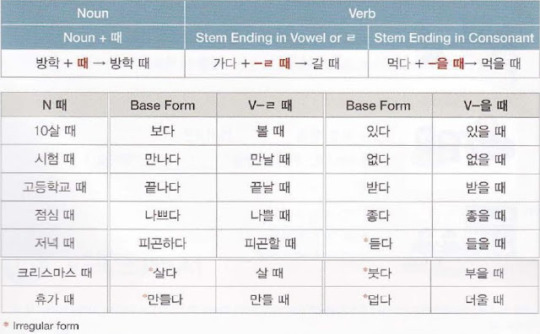
0 notes